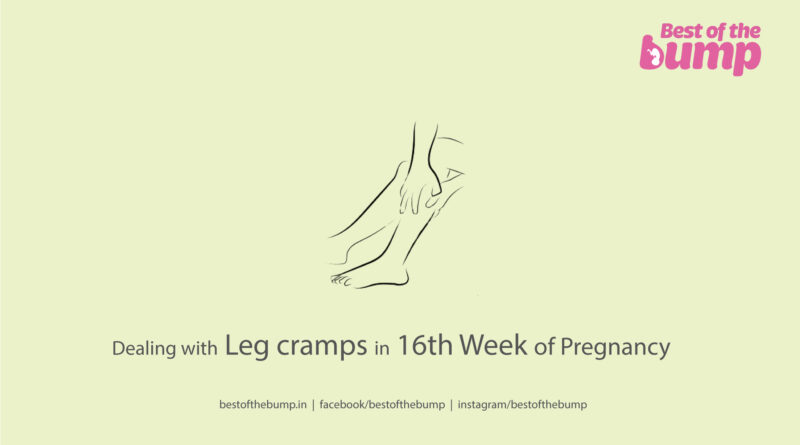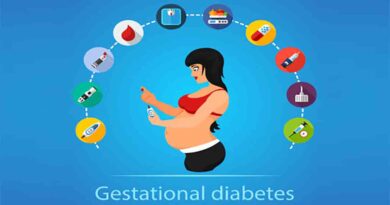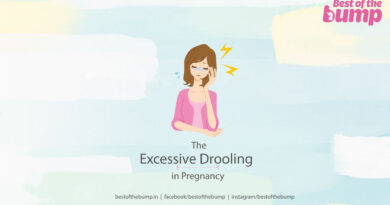Leg cramps in Second Trimester of Pregnancy
Leg cramps are a common and bothersome issue experienced by many pregnant women, particularly during the second trimester and as the pregnancy progresses. These painful spasms, which often occur at night, can disrupt sleep and contribute to pregnancy insomnia. In this comprehensive guide, we will delve into the causes of leg cramps during pregnancy, explore effective strategies for managing and preventing them, and discuss when it is important to seek medical attention.
Understanding Leg Cramps during Pregnancy:

Leg cramps during pregnancy typically manifest as painful spasms that radiate through the calves and up the legs. While the exact cause is not fully understood, there are several factors that contribute to their occurrence. The expanding uterus puts pressure on blood vessels and nerves in the pelvic region, potentially affecting blood flow and nerve function in the legs. Additionally, hormonal changes and nutrient deficiencies, such as low levels of calcium, magnesium, and potassium, can increase the likelihood of experiencing leg cramps.
Managing Leg Cramps:
Leg cramps are common during pregnancy, often happening at night during the second and third trimesters. They are painful muscle contractions that typically affect the calf, foot or both.
Exercise:
Engaging in regular, low-impact exercise, such as brisk walking, can help alleviate leg cramps. Walking improves circulation and muscle flexibility, reducing the frequency and intensity of cramps. It is advisable to incorporate exercise into your daily routine, either in the morning or evening.
Balanced Diet:
Consuming a diet rich in calcium, magnesium, and potassium is crucial during pregnancy. These nutrients help maintain muscle function and prevent cramping. Bananas, known for their high potassium content, are particularly beneficial. Other sources of these nutrients include milk, eggs, leafy greens, and fortified cereals.
Warm Baths and Massages:

Taking a warm bath before bed or receiving a gentle massage can help relax the muscles and relieve leg cramps. Warm water soothes the affected areas and promotes muscle relaxation, reducing discomfort and aiding in better sleep.
Hydration:
Staying well-hydrated is essential for preventing leg cramps and other pregnancy-related complications. Drinking an adequate amount of water helps maintain electrolyte balance and supports muscle function. Aim to drink at least eight glasses of water per day.
Sleep Position:
Sleeping with your knees slightly bent can alleviate leg cramps during the night. This position helps relieve pressure on the muscles and blood vessels, reducing the intensity of cramps. Experiment with pillows or pregnancy support cushions to find a comfortable sleeping position.
Compression Stockings:
Wearing compression stockings or socks can improve blood circulation in the legs, reducing the likelihood of leg cramps. These specialized stockings apply gentle pressure to the legs, preventing blood from pooling and helping to alleviate discomfort.
When to Seek Medical Attention:

While leg cramps are typically a normal part of pregnancy, it is important to be aware of potential signs of a more serious condition, such as a blood clot. If you experience constant muscle pain, swelling, tenderness, or redness in your leg, it is crucial to consult your gynecologist immediately. Blood clots are rare but can pose serious health risks, especially during pregnancy.
Conclusion:
Leg cramps during pregnancy can be a challenging and uncomfortable experience for many women. However, by understanding the causes and implementing effective strategies for managing and preventing leg cramps, you can significantly reduce their impact on your daily life. Remember to exercise regularly, maintain a balanced diet, indulge in warm baths and massages, stay hydrated, and prioritize sleep. Should you experience any persistent pain or concerning symptoms, do not hesitate to seek medical attention. By taking care of your body and seeking appropriate support, you can navigate through this phase of pregnancy with greater comfort and peace of mind.




